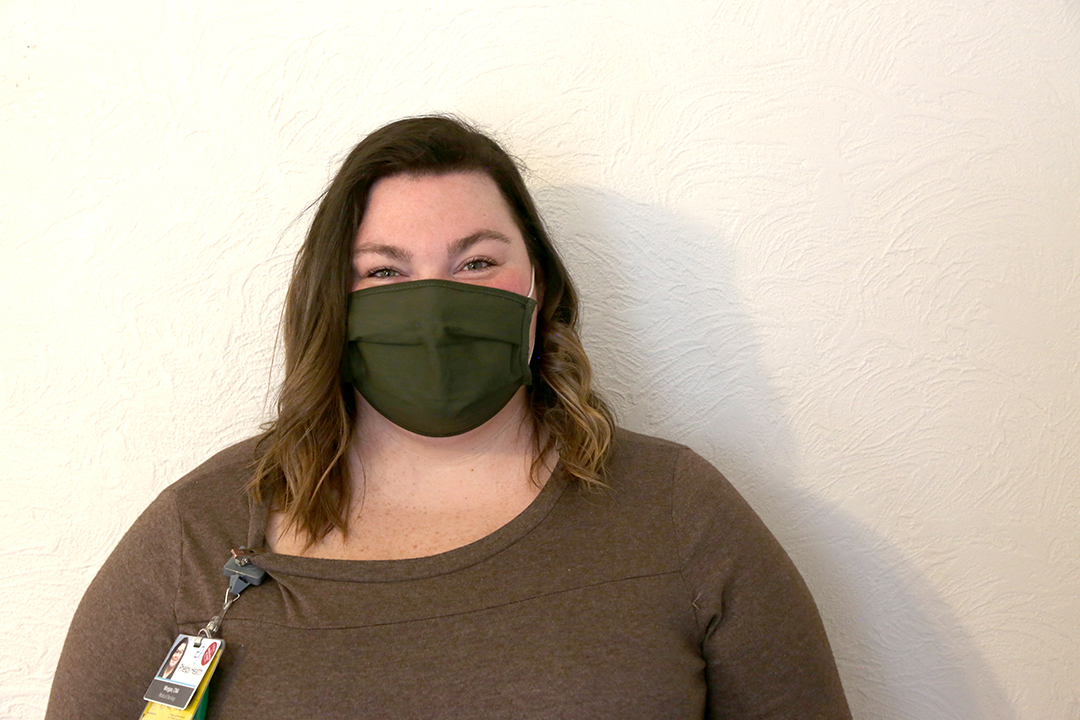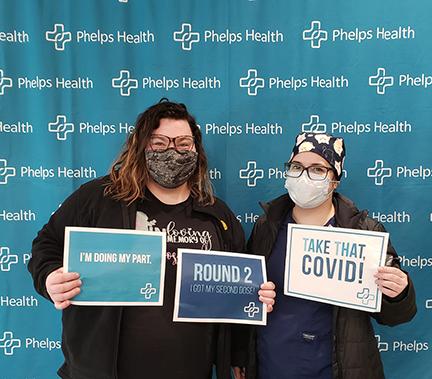
Published on February 12, 2021
Read Time: Three Minutes
A Phelps Health nurse has a message for young individuals about COVID-19: Take it seriously.
At the age of 24, Morgan Swyers, LPN, contracted COVID-19 in December 2020.
“When I got COVID-19, it resulted in double pneumonia that turned out [to be] pretty severe, and I was hospitalized,” she said.
One of the first symptoms she noticed was feeling lethargic. “I was sleeping all the time. I wasn't eating or drinking like I should have been,” she said.
Swyers’s family and coworkers were concerned about her, so she went to Phelps Health Hospital. Once admitted, she said her oxygen levels began falling.
Swyers, who has asthma, said she used nebulizers (devices that turn liquid medicine to mist), but noted they did not seem to help.
“I really struggled with breathing,” she recalled.
In addition to difficulty breathing, a common symptom of COVID-19, Swyers also lost her ability to taste or smell.
Swyers was admitted to the hospital on a Saturday morning, and remembers being dehydrated. She was given fluids through an IV and placed on oxygen. During her hospitalization, Swyers was given the drug, remdesivir. In addition, she had a blood plasma transfusion to help.
A respiratory therapist recommended Swyers be placed in the prone position (when a person lies flat, face down) to help improve her oxygen levels.
“By Monday night, I was only on two liters of oxygen and was up walking, whereas the day before that, it took everything…trying to walk,” she recalled.

During her hospital stay, Swyers was a patient in the same unit where she works. She said her coworkers were all worried about her.
“Prior to having COVID-19, I did take care of COVID-19 patients,” Swyers said. She remembered starting her work shifts “and the patients are fine and they're doing great, and then you end your shift and those patients are in the ICU [Intensive Care Unit] and they just have taken a turn so fast.”
Swyers said her husband also tested positive for COVID-19, but the only symptoms he noticed were a loss of taste and smell.
“We'd never been through anything like that, so he [her husband] didn't know what to expect,” Swyers said. “He tried to FaceTime me…but I was too tired to even respond.” There were times when he would not hear from Swyers for up to 12 hours.
Swyers urges everyone, including younger people, to take necessary precautions to help slow the spread of COVID-19, including wearing a mask, social distancing and washing your hands.
“You don't know if you're going to be the 25-year-old who only loses their taste or smell, or the 24-year-old who is hospitalized and very sick,” she said. “There's no way to tell how it's going to affect each person.”
Swyers said she has been doing much better since she was released from the hospital.
When she heard about the opportunity to get the COVID-19 vaccine, Swyers said, “I read a bunch of information, and I thought about it a lot, and I personally decided it was the best thing for me.”
Want to Learn More About COVID-19?
Visit our COVID-19 page for the latest information on testing, vaccines and more.